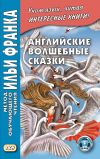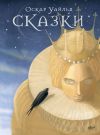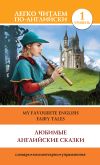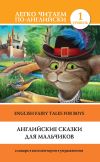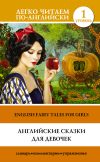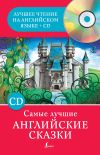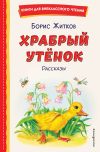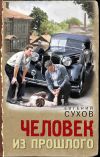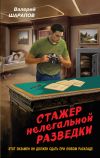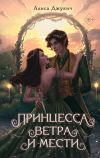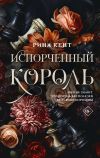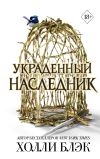Текст книги "Сказки / Fairy Tales"
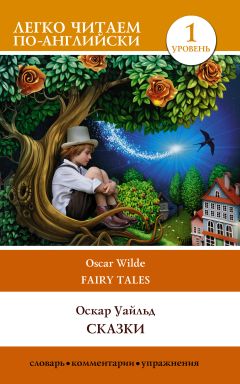
Автор книги: Оскар Уайльд
Жанр: Иностранные языки, Наука и Образование
Возрастные ограничения: +12
сообщить о неприемлемом содержимом
Текущая страница: 5 (всего у книги 8 страниц)
The young King looked at him.
‘Is it so, indeed?’ he questioned. ‘Will they not know me for a king if I don’t have a king’s raiment?’
‘They will not know you, my lord,’ cried the Chamberlain.
‘I thought that some men were kinglike,’ he answered, ‘but you may be right. And yet I will not wear this robe, nor will I be crowned with this crown. Even as I came to the palace so will I go forth from it.’
And he drove them all away. He had one page whom he kept as his companion. That lad was a year younger than himself. The young King kept him for his service.
When the young King bathed himself in clear water, he opened the great chest. He took the leathern tunic and rough sheepskin cloak from it. He put them on, and he took his rude shepherd’s staff in his hand.
The little page opened his big blue eyes in wonder, and said to him,
‘My lord, I see your robe and your sceptre, but where is your crown?’
The young King plucked a spray of wild briar from the balcony, and bent it, and made a circlet of it, and set it on his own head.
‘This will be my crown,’ he answered.
Then he passed out of his chamber into the Great Hall to the nobles.
The nobles laughed, and some of them cried out to him,
‘My lord, the people wait for their king, and you show them a beggar!’
Others were wroth and said,
‘He brings shame upon our state. He is unworthy to be our master.’
But he did not answer them. He went down the bright porphyry staircase, and out through the gates of bronze. Then he mounted upon his horse, and rode towards the cathedral. The little page ran beside him.
The people laughed and said,
‘It is the King’s fool,’ and they mocked him.
The young King drew rein and said,
‘No, but I am the King.’
And he told them his three dreams.
A man came out of the crowd and told him,
‘Sir, don’t you know that the life of the poor comes out of the luxury of the rich? Your pomp nurtures us, your vices give us bread. To toil for a hard master is bitter, but to have no master is more bitter still. Do you think that the ravens will feed us? What cure do you know for these things? Will you say to the buyer, “You must buy for so much,” and to the seller, “You must sell at this price”? It is impossible. Therefore go back to your Palace. Put on your purple and fine linen.’
‘Are not the rich and the poor brothers?’ asked the young King.
‘Yes,’ answered the man, ‘and the name of the rich brother is Cain.’
The young King’s eyes filled with tears, and he rode on. The little page was afraid and left him.
When the young King reached the great portal of the cathedral[58]58
great portal of the cathedral – соборные врата
[Закрыть], the soldiers thrust their halberts out and said,
‘What do you seek here? None enters by this door but the King.’
His face flushed with anger, and he said to them,
‘I am the King,’ and waved their halberts aside and passed in.
When the old Bishop saw him in his goatherd’s dress, he rose up in wonder from his throne. He went to meet him, and said to him,
‘My son, is this a king’s apparel? And with what crown shall I crown you? What sceptre shall I place in your hand? Surely this must be to a day of joy, and not a day of abasement.’
‘Must Joy wear what Grief made?’ said the young King.
And he told him his three dreams. When the Bishop heard them he knit his brows, and said,
‘My son, I am an old man. I know that there are many evil things in this world. The fierce robbers come down from the mountains. They carry off the little children, and sell them to the Moors[59]59
the Moors – мавры
[Закрыть]. The lions wait for the caravans, and leap upon the camels. The wild boar roots up the corn in the valley. The foxes gnaw the vines upon the hill. The pirates rob the sea-coast and burn the ships of the fishermen, and take their nets from them. In the salt-marshes live the lepers. They have houses of wattled reeds, and none may come nigh them. The beggars wander through the cities, and eat their food with the dogs. Can you change that? Will you take the leper home? Will you invite the beggar? Will the lion listen to you? Will the wild boar obey you? Is not He who made misery wiser than you are? I don’t praise you for what you do. I bid you ride back to the Palace and make your face glad. Put on the raiment that beseems a king. I will crown you with the crown of gold. I will place the sceptre of pearl in your hand. And as for your dreams, think no more of them. The burden of this world is too great for one man to bear. The world’s sorrow is too heavy for one heart to suffer.’
‘Do you say these things in this house?’ said the young King.
He strode past the Bishop, and climbed up the steps of the altar, and stood before the image of Christ.
He stood before the image of Christ, and on his right hand and on his left were the marvellous vessels of gold, the chalice with the yellow wine, and the vial with the holy oil. He knelt before the image of Christ. The great candles burned brightly by the jeweled shrine. The smoke of the incense curled in thin blue wreaths through the dome. He bowed his head in prayer. The priests in their stiff copes crept away from the altar.
Suddenly a wild tumult came from the street outside. The nobles with swords and shields of steel entered.
‘Where is this dreamer?’ they cried. ‘Where is this King who is like a beggar – this boy who brings shame upon our state? Surely we will slay him! He is unworthy to rule over us.’
The young King bowed his head again, and prayed. When he finished his prayer he rose up. He turned round and looked at them sadly.
And lo! through the painted windows came the sunlight upon him. The sun-beams wove round him a tissued robe that was fairer than the king’s robe. The dead staff blossomed, and the lilies were whiter than pearls. The dry thorn blossomed, and the roses were redder than rubies. The lilies were whiter than fine pearls. Their stems were of bright silver. The roses were redder than the rubies. Their leaves were of beaten gold.
He stood there in the raiment of a king. The gates of the jeweled shrine flew open. A marvellous and mystical light shone forth. He stood there in a king’s raiment, and the Glory of God filled the place. The saints in their carven niches moved. He stood before them in the fair raiment of a king, and the organ began to play. The trumpeters blew upon their trumpets, and the boys sang.
The people fell upon their knees in awe. The nobles sheathed their swords and did homage[60]60
did homage – присягнули на верность
[Закрыть]. The Bishop’s face grew pale, and his hands trembled.
‘Someone who is greater than I crowned you,’ he cried, and he knelt before him.
The young King came down from the high altar, and passed home through the people. No man dared look upon his face, because it was like the face of an angel.
The Birthday of the Infanta
It was the birthday of the Infanta. She was twelve years old, and the sun shone brightly in the gardens of the palace.
Although she was a real Princess and the Infanta of Spain, she had only one birthday every year, just like the children of poor people. That’s why it was important to have a really fine day for the occasion. And a really fine day it certainly was. The tall striped tulips stood straight up upon their stalks, like long rows of soldiers. They looked defiantly across the grass at the roses, and said:
‘We are as splendid as you are now.’
The purple butterflies fluttered about with gold dust on their wings. The little lizards crept out of the crevices of the wall, and lay in the white glare. The pomegranates split and cracked with the heat, and showed their red hearts. Even the pale yellow lemons caught a rich colour from the wonderful sunlight. The magnolia trees opened their great globe-like blossoms of folded ivory, and filled the air with a sweet heavy perfume.
The little Princess walked up and down the terrace with her companions, and played at hide and seek[61]61
hide and seek – прятки
[Закрыть] round the stone vases and the old statues. On ordinary days she played with children of her own rank, so she always played alone. But her birthday was an exception, and the King gave orders to invite any of her young friends. There was a stately grace about these slim Spanish children. The boys with their large hats and short cloaks, the girls with long gowns. But the Infanta was the most graceful of all. Her robe was of grey satin, the skirt and the wide sleeves were embroidered with silver. The stiff corset had rows of fine pearls. Two tiny slippers with big pink rosettes peeped out beneath her dress. Pink and pearl was her great gauze fan, and in her hair she had a beautiful white rose.
From a window in the palace the sad melancholy King watched the children. Behind him stood his brother, Don Pedro of Aragon, whom he hated, and his confessor, the Grand Inquisitor of Granada. The King was sadder even than usual. When he looked at the Infanta, he thought of the young Queen, her mother. Her mother died six months after the birth of her child. The King’s love was so great that he did not allow the grave to hide her from him. She was embalmed. Her body lay on the bier in the black marble chapel of the Palace. Once every month the King, wrapped in a dark cloak and with a lantern in his hand, goes in and kneels by her side. He calls out, ‘Mi reina! Mi reina! (My Queen!)’ and takes the pale hands in a wild agony of grief, and tries to wake the cold painted face by his mad kisses.
Today he thought he saw her again, when he was fifteen, and she still younger. They were formally betrothed on that occasion by the Papal Nuncio in the presence of the French King and all the Court. After that he returned to the Escurial with him a little ringlet of yellow hair, and the memory of two childish lips.
Their marriage was soon performed at Burgos, a small town on the frontier between two countries. Certainly he loved her madly. He hardly ever permitted her to be out of his sight; for her, he forgot all affairs of State. And he did not notice that the elaborate ceremonies by which he tried to please her, aggravated the strange malady from which she suffered. When she died he was insane. And he refused to marry again. When the Emperor himself sent to him, and offered him the hand of the lovely Archduchess of Bohemia, his niece, in marriage, he said that he was already wedded to Sorrow, and that he loved her better than Beauty.
His whole married life came back to him today when he watched the Infanta on the terrace. She had all the Queen’s manners. But the shrill laughter of the children grated on his ears. The bright pitiless sunlight mocked his sorrow. He buried his face in his hands. When the Infanta looked up, the King went away.
She was disappointed, and shrugged her shoulders. Surely he must stay with her on her birthday. What did the stupid State-affairs[62]62
State-affairs – государственные дела
[Закрыть] matter? Or did he go to that gloomy chapel, where she was entered? How silly of him, when everybody is so happy! Besides, he will miss the merry bull-fight and the puppet-show and the other wonderful things. Her uncle and the Grand Inquisitor were much more sensible. They came out on the terrace, and paid her nice compliments.
So she tossed her pretty head, and took Don Pedro by the hand. She walked slowly down the steps towards a long pavilion of purple silk. The other children followed.
A procession of noble boys, fantastically dressed as toreadors, came out to meet her. The young Count of Tierra-Nueva, a wonderfully handsome lad of about fourteen years of age, uncovered his head with the grace. He led her solemnly to a little gilt and ivory chair on a dais above the arena. The children grouped themselves all round. Don Pedro and the Grand Inquisitor stood at the entrance. Even the Duchess – a thin woman with a yellow ruff – did not look so bad-tempered as usual. Sometimes a chill smile flitted across her wrinkled face and twitched her thin bloodless lips.
It certainly was a marvellous bull-fight, and much nicer, the Infanta thought, than the real one. Some of the boys pranced about on hobby-horses[63]63
hobby-horses – палочки-лошадки
[Закрыть] with streamers of bright ribbons. Others went on foot with their scarlet cloaks before the bull. As for the bull himself, he was made of wickerwork. Sometimes he ran round the arena on his hind legs. It was a splendid fight! The children were so excited that they stood up upon the benches, and waved their handkerchiefs and cried out: Bravo toro! Bravo toro!
At last, however, after a combat, the young Count of Tierra-Nueva brought the bull to his knees, and plunged his wooden sword into the neck of the animal. The head came right off, and disclosed the face of little Monsieur de Lorraine, the son of the French Ambassador at Madrid.
Then some Italian puppets appeared in the tragedy of “Sophonisba” on the stage of a small theatre. They acted so well, and their gestures were so extremely natural, that the eyes of the Infanta were quite dim with tears. Indeed some of the children really cried. Even the Grand Inquisitor himself was affected.
An African juggler followed, who brought in a large basket and placed it in the centre of the arena. He took from his turban a curious reed pipe, and blew through it. In a few moments two green and gold snakes put out their strange heads and rose slowly up. The children were frightened. They were much more pleased when the juggler made a tiny orange-tree of the sand, with pretty white blossoms and clusters of real fruit. And when he took the fan of the little daughter of the Marquess de Las-Torres, and changed it into a blue bird that flew all round the pavilion and sang, their delight and amazement knew no bounds.
The solemn minuet, too, performed by the boys from the church of Nuestra Senora Del Pilar, was charming. The boys wore old-fashioned court dresses of white velvet. Their curious hats were fringed with silver and surmounted with huge plumes of ostrich feathers. Everybody was fascinated by the grave dignity with which they moved.
A troop of handsome Egyptians then advanced into the arena. They sat down in a circle, and began to play softly upon their zithers. They played very gently and touched the cords of the zithers with their long pointed nails, and their heads began to nod. Suddenly, they leapt to their feet and disappeared for a moment. They came back with a brown shaggy bear and some little apes. The bear stood upon his head with the utmost gravity, and the apes played all kinds of amusing tricks.
But the funniest part of the whole morning’s entertainment, was undoubtedly the little Dwarf. When he stumbled into the arena on his crooked legs, with his huge misshapen head, the children were excited. The Infanta herself laughed much.
The Dwarf, however, was really irresistible. It was his first appearance. The servants discovered him only the day before. He ran through the forest, and two nobles who hunted in a remote part of the wood that surrounded the town, brought him to the Palace as a surprise for the Infanta. His father, who was a poor charcoal-burner, was pleased to get rid of this ugly and useless child. Perhaps the most amusing thing about him was his complete unconsciousness of his own grotesque appearance. Indeed he seemed quite happy. When the children laughed, he laughed freely and joyously with them. After each dance he made them bows. As for the Infanta, she absolutely fascinated him. He danced for her alone. When she took out of her hair the beautiful white rose, and threw it to him across the arena with her sweetest smile, he took it quite seriously, and pressed the flower to his rough coarse lips. Then he put his hand upon his heart, and sank on one knee before her. His little bright eyes sparkled with pleasure.
The little Dwarf ran away, and the Infanta expressed a desire to her uncle to repeat the dance. The Camerera, however, said that the sun was very hot, and decided to return without delay to the Palace, where a wonderful feast was already prepared for her Highness, including a real birthday cake with her own initials in painted sugar and a lovely silver flag. The Infanta rose up with much dignity, and gave orders to see the dwarf’s dance again after the hour of siesta. Then she went back to her apartments. The children followed her.
When the little Dwarf received the command to dance a second time before the Infanta, he was so proud that he ran out into the garden. He kissed the white rose in an absurd ecstasy of pleasure.
The Flowers were quite indignant. He dares to intrude into their beautiful home! They could not restrain their feelings.
‘He is really too ugly to play in any place where we are,’ cried the Tulips.
‘Give him poppy-juice, and he will go to sleep for a thousand years,’ said the great scarlet Lilies, and they grew quite hot and angry.
‘He is a perfect horror!’ screamed the Cactus. ‘He is twisted and stumpy. His head is completely out of proportion with his legs. If he comes near me I will sting him with my thorns.’
‘And he has actually got one of my best blooms,’ exclaimed the White Rose-Tree. ‘I gave it to the Infanta myself, as a birthday present. But he stole it from her!’ And she called out: ‘Thief, thief, thief!’
Even the red Geraniums, who had many poor relations themselves, curled up in disgust when they saw him. When the Violets meekly remarked that though he was certainly extremely plain, still it was not his fault, they retorted that that was his chief defect. There is no reason why admire a person because he is incurable. Indeed, some of the Violets themselves felt that the ugliness of the little Dwarf was almost ostentatious.
As for the old Sundial, he almost forgot to mark two whole minutes with his long shadowy finger. He said that the children of Kings were Kings, and the children of charcoal-burners were charcoal-burners. So it is absurd to pretend that it isn’t so – a statement with which the Peacock entirely agreed, and indeed screamed out, ‘Certainly, certainly’.
But somehow the Birds liked the little Dwarf. They saw him often in the forest. He danced like an elf. They did not mind his ugliness. Why, even the nightingale herself, who sang so sweetly in the orange groves at night that sometimes the Moon leaned down to listen, was not very beautiful after all. Besides, that boy was kind to them, and during that terribly bitter winter, when there were no berries on the trees, and the ground was as hard as iron, he never forgot them. He always gave them crumbs of black bread, and divided with them his poor breakfast.
So they flew round and round him, and touched his cheek with their wings and chattered to each other. The little Dwarf was so pleased that he showed them the beautiful white rose, and told them that the Infanta herself loved him.
The birds did not understand a single word, and put their heads on one side, and looked wise.
The Lizards also liked him. When he was tired and flung himself down on the grass to rest, they played and romped all over him, and tried to amuse him.
‘Everyone cannot be as beautiful as a lizard,’ they cried; ‘and, though it sounds absurd to say so, he is really not so ugly after all, provided, of course, that one shuts one’s eyes, and does not look at him.’
The Lizards were extremely philosophical by nature. The Flowers, however, were excessively annoyed at their behaviour, and at the behaviour of the birds.
‘It only shows,’ they said, ‘how vulgar you are. That’s because you rush and fly. Good people always stay exactly in the same place, as we do. We don’t hop up and down the walks, or gallop madly through the grass after dragon-flies. When we want change of air, we send for the gardener, and he carries us to another bed. But birds and lizards have no sense of repose. Indeed birds have not even a permanent address. They are mere vagrants like the gipsies.’
So they put their noses in the air, and looked very haughty. They were quite delighted when after some time they saw how the little Dwarf scrambles up from the grass, and goes across the terrace to the palace.
‘They must certainly keep him indoors,’ they said. ‘Look at his hunched back, and his crooked legs,’ and they began to titter.
But the little Dwarf knew nothing of all this. He liked the birds and the lizards immensely. He thought that the flowers were the most marvellous things in the whole world, except of course the Infanta. She gave him the beautiful white rose, and she loved him! He wanted to be with her. She will put him on her right hand, and smile. And he will make her his playmate, and teach her many delightful tricks. Indeed, he knew many wonderful things. He could make little cages out of rushes for the grasshoppers. He could turn the long bamboo into the pipe. He knew the cry of every bird. He knew the trail of every animal. He knew all the wild-dances, the mad dance in red raiment with the autumn, the light dance in blue sandals over the corn, the dance with white snow-wreaths in winter, and the blossom-dance through the orchards in spring. He knew where the pigeons built their nests. She will like the rabbits that scurry about in the long fern, and the jays with their steely feathers and black bills, and the hedgehogs that curl themselves up into prickly balls, and the great wise tortoises that crawl slowly about. Yes, she must certainly come to the forest and play with him. He will give her his own little bed. And at dawn he will tap at the shutters and wake her. Then they will go out and dance together. It is really not lonely in the forest. Sometimes a Bishop rode through on his white mule. Sometimes in their green velvet caps the falconers passed by. Sometimes the charcoal-burners sat round their huge braziers at night. Once he saw a beautiful procession of the monks. Certainly there is much interesting in the forest!
When she is tired he will find a soft bank of moss for her, or carry her in his arms. He is very strong, though he knows that he is not tall. He will make her a necklace of red bryony berries. When she is tired of them, she can throw them away, and he will find her others.
But where was she? He asked the white rose, and it did not answer. The whole palace seemed asleep, there were heavy curtains everywhere. He wandered all round, he wanted to find an entrance. At last he saw a little door. He slipped through, and found himself in a splendid hall, more splendid, he feared, than the forest. But the little Infanta was not there, only some wonderful white statues that looked down on him from their jasper pedestals, with sad blank eyes.
At the end of the hall hung a richly embroidered curtain of black velvet. Perhaps she is behind that? He will try.
He drew it aside. No; there was only another room. The little Dwarf looked in wonder all round him, and was afraid to go on. But he thought of the pretty Infanta, and took courage[64]64
took courage – осмелел
[Закрыть]. He wanted to find her alone, and to tell her that he too loved her. Perhaps she was in the next room.
He ran across the soft carpets, and opened the door. No! She was not here either. The room was quite empty.
It was a throne-room, for the reception of foreign ambassadors, when the King gave them a personal audience. It was magnificent. But the little Dwarf cared nothing for all this magnificence. He won’t give his rose for all the pearls, nor one white petal of his rose for the throne itself. What he wanted was to see the Infanta, and to ask her to come away with him. Here, in the Palace, the air was heavy, but in the forest the wind blew free. There were flowers, too, in the forest, not so splendid, perhaps, as the flowers in the garden, but anyway. Yes: surely she will come if he only finds her! She will come with him to the forest, and all day long he will dance for her delight. A smile lit up his eyes at the thought, and he passed into the next room.
Of all the rooms this was the brightest and the most beautiful. And he was not alone there. Under the shadow of the doorway, at the extreme end of the room, he saw a little figure. His heart trembled, a cry of joy broke from his lips. He moved. As he did so, the figure moved out also, and he saw it plainly.
The Infanta? No. It was a monster, a very grotesque monster. Not properly shaped, but hunchbacked, and crooked-limbed, with huge head and mane of black hair. The little Dwarf frowned, and the monster frowned also. He laughed, and it laughed with him. He made it a mocking bow, and it returned him a low reverence. He went towards it, and it came to meet him. It copied each step that he made, and stopped when he stopped himself. He shouted with amusement, and ran forward. He reached out his hand, and the hand of the monster touched his, and it was as cold as ice. He was afraid, and moved his hand across, and the monster’s hand followed it quickly. He tried to press on, but something smooth and hard stopped him. The face of the monster was now close to his own, and seemed full of terror. He brushed his hair off his eyes. It imitated him. He drew back, and it retreated.
What is it? Was it Echo? He took from his breast the beautiful white rose. He turned round, and kissed it. The monster had a rose of its own, petal for petal the same! It kissed it with like kisses, and pressed it to its heart with horrible gestures.
When the truth dawned upon him, he gave a wild cry of despair, and fell to the ground. So it was he who was misshapen and hunchbacked! He himself was the monster! All the children laughed at, and the little Princess who too merely mocked at his ugliness, and laughed at his twisted limbs. Why did not they leave him in the forest, where there was no mirror to tell him how loathsome he was?
Why did not his father kill him, rather than sell him? The hot tears poured down his cheeks, and he tore the white rose to pieces. The monster did the same, and scattered the faint petals in the air. It grovelled on the ground, and, when he looked at it, it watched him with a face drawn with pain. He crept away and covered his eyes with his hands. He crawled into the shadow, and lay there.
And at that moment the Infanta herself came in with her companions through the open window. When they saw the ugly little dwarf on the ground in the most fantastic and exaggerated manner, they laughed happy. They stood all round him and watched him.
‘His dance was funny,’ said the Infanta; ‘but his play is funnier still. Indeed he is almost as good as the puppets, only of course not quite so natural.’
She fluttered her big fan and applauded.
But the little Dwarf did not look up. His sobs grew fainter and fainter. Suddenly he gave a curious gasp, and clutched his side. Then he fell back, and lay quite still.
‘That is wonderful,’ said the Infanta, after a pause; ‘but now you must dance for me.’
‘Yes,’ cried all the children, ‘you must get up and dance, for you are as clever as the Barbary apes, and much more ridiculous.’
But the little Dwarf did not answer.
The Infanta stamped her foot, and called out to her uncle.
‘My funny little dwarf sulks,’ she cried, ‘you must wake him up, and tell him to dance for me.’
Don Pedro entered and slapped the Dwarf on the cheek with his glove.
‘You must dance,’ he said, ‘a little monster. You must dance. The Infanta of Spain wishes to amuse herself.’
But the little Dwarf did not move.
‘Sent for a doctor,’ said Don Pedro wearily, and he went back to the terrace.
But the Chamberlain looked grave. He knelt beside the little dwarf, and put his hand upon his heart. After a few moments he shrugged his shoulders, and rose up. He made a low bow to the Infanta and said,
‘My dear Princesa, your funny little dwarf will never dance again. It is a pity, for he is so ugly that he may amuse the King himself.’
‘But why will he not dance again?’ asked the Infanta and laughed.
‘Because his heart is broken,’ answered the Chamberlain.
The Infanta frowned, and her dainty lips curled in pretty disdain.
‘For the future let those who come to play with me have no hearts,’ she cried, and she ran out into the garden.
Правообладателям!
Это произведение, предположительно, находится в статусе 'public domain'. Если это не так и размещение материала нарушает чьи-либо права, то сообщите нам об этом.

